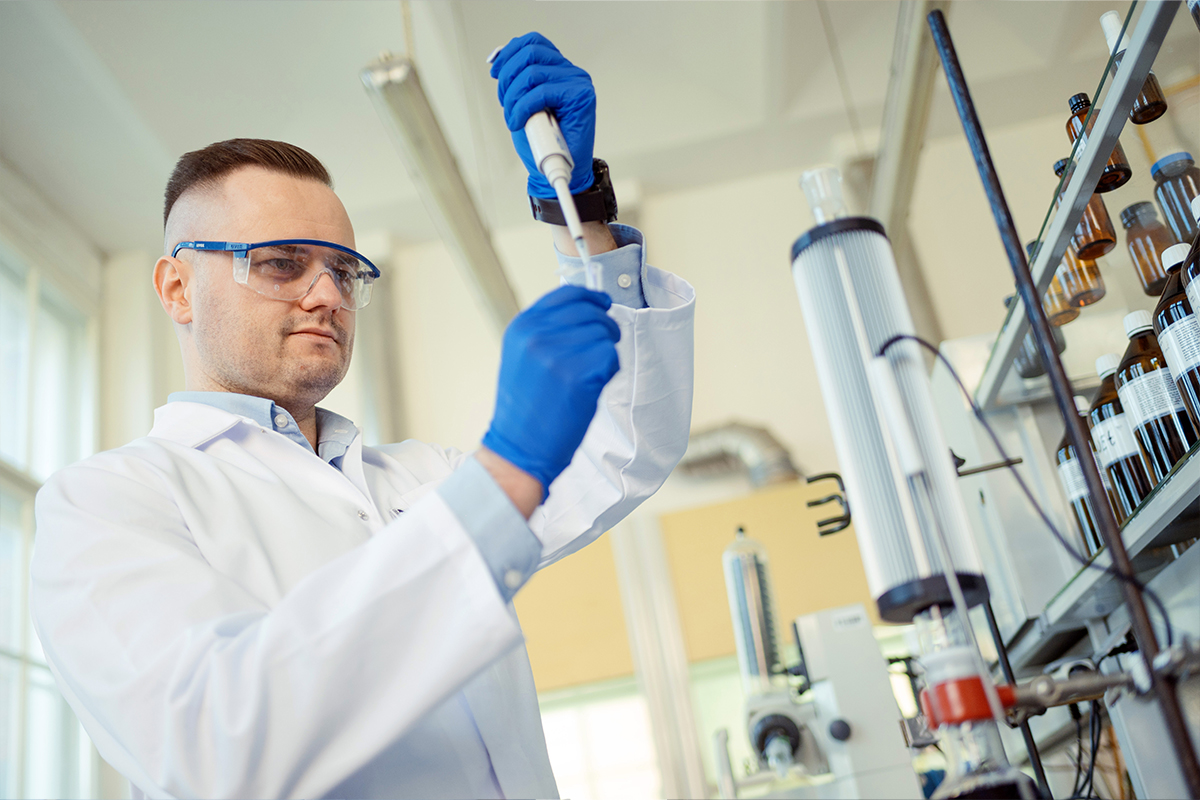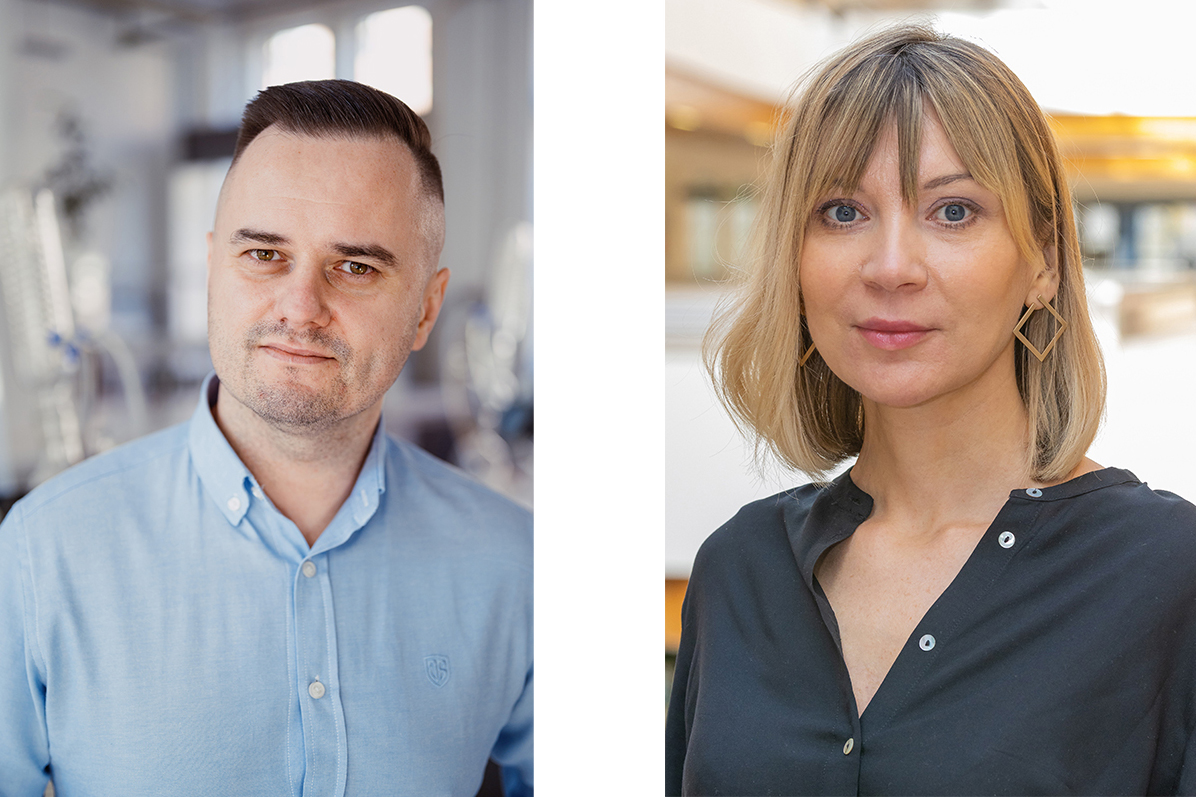Scientists look for compounds to facilitate the development of a new anti-COVID-19 drug
The scientists from the Gdańsk University of Technology and the Medical University of Gdańsk, that is two of the three universities within the Fahrenheit Universities (FarU), are working to obtain new compounds blocking the activity of enzymes which play a key role in the SARS-CoV-2 coronavirus replication process. In the near future, this is supposed to permit the development of an effective, safe and cheap Polish drug preventing the severe course of COVID-19.
The objective of the research of the team headed by Prof. Sebastian Demkowicz, Associate Professor of the Gdańsk Tech, from the Department of Organic Chemistry of the Faculty of Chemistry of the Gdańsk University of Technology, is to obtain new effective SARS-CoV-2 Mpro protease enzyme inhibitors, that is low molecular chemical compounds blocking the activity of the protease. That enzyme is produced in human cells infected with the coronavirus and plays a key role in the replication (multiplication) of the SARS-CoV-2 coronavirus responsible for the COVID-19 pandemic.
– Chemical substances classified as protease inhibitors are counted among the most modern and extremely promising design strategies for new drugs used in many anti-virus therapies, including COVID-19 treatment, and are an effective supplement to vaccination and other preventive actions – explains Prof. Sebastian Demkowicz. – Drugs developed on the basis of those substances provide the opportunity to control coronavirus infections more effectively, thus leading to the mitigation of the course of the disease and to the considerable minimisation of the risk of patients’ hospitalisation or death.
The scientists hope that obtaining new, highly active SARS-CoV-2 Mpro protease enzyme inhibitors will permit them, in the near future, to develop an efficient cheap Polish oral drug preventing the severe course of the disease.
18 new chemical compounds
At the first stage, the team of scientists under the supervision of Prof. Demkowicz, using computer molecular modelling techniques, designed the structures of compounds with the highest degree of matching the protease active site.
– We selected a group of compounds distinguished by the highest theoretical potential. Then, as a result of synthesis, we developed original methods of obtaining eighteen new chemical compounds – says Prof. Demkowicz.
The compounds’ capacity to inhibit the activity of the SARS-CoV-2 Mpro protease was examined in cooperation with the research team of Prof. Iwona Inkielewicz-Stępniak, Head of the Department and Division of Pharmaceutical Pathophysiology of the Medical University of Gdańsk. The range of the in vitro biological experiments comprised the examination of cytotoxicity in relation to human lung cells and blood vessels endothelium to determine the safety of potential use.
– It is worth emphasizing that the designed compounds are very efficient in inhibiting the SARS-CoV-2 Mpro protease in low concentrations, at the micromolecular level. They are also distinguished by much lower cytotoxicity in relation to human cell lines under investigation, in comparison to ebselen, which we used as a reference compound due to its proven activity in relation to cysteine protease from SARS-CoV-2 and very low toxicity – says Prof. Iwona Inkielewicz-Stępniak.
– This may translate into no undesirable side-effects and a high profile of application safety – emphasizes Prof. Demkowicz. – The further development of the project will permit us to verify the competitiveness of the obtained molecules in relation to Paxlovid, an oral anti-viral drug, for which the European Commission, following the recommendation from the Committee for Medicinal Products for Human Use of the European Medicines Agency, issued conditional authorisation for COVID-19 treatment – anticipates the project manager.
The project titled the “Design, synthesis and investigation of the biological activity of new SARS-CoV-2 Mpro protease inhibitors as potential chemotherapeutic agents in COVID-19 treatment” is implemented as part of the Curium – Combating Coronavirus programm.
Photo: Bartosz Bańka / Gdańsk University of Technology, Paweł Sudara / MUG


